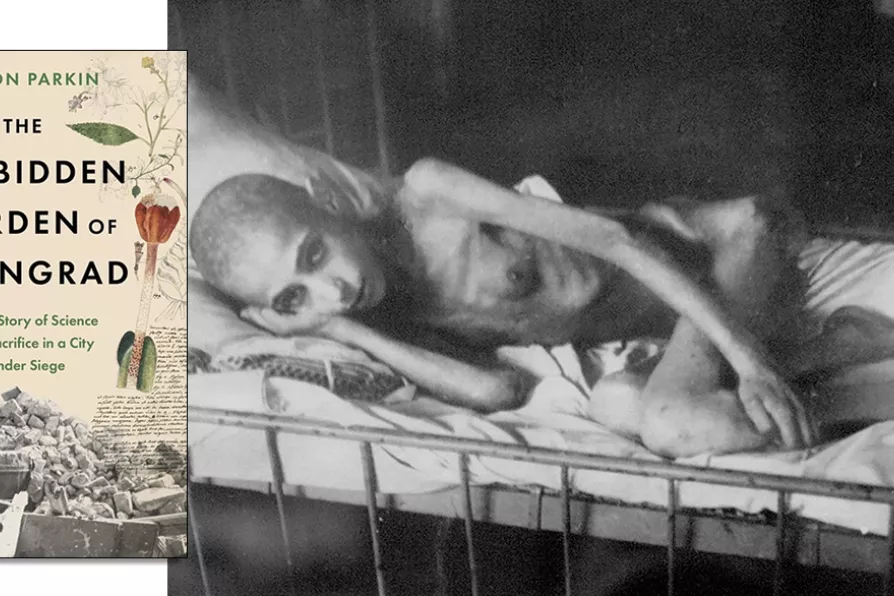RITA DI SANTO draws attention to a new film that features Ken Loach and Jeremy Corbyn, and their personal experience of media misrepresentation

 IMPOSSIBLE CHOICES: A victim of starvation in besieged Leningrad suffering from muscle atrophy, 1941
[George Shuklin/Museum of the Siege of Leningrad/CC]
IMPOSSIBLE CHOICES: A victim of starvation in besieged Leningrad suffering from muscle atrophy, 1941
[George Shuklin/Museum of the Siege of Leningrad/CC]
The Forbidden Garden of Leningrad
Simon Parkin, Sceptre, £25
IMAGINE being faced with the very real dilemma of whether you should eat your life’s work in order to survive. What if that life’s work was the very struggle against hunger itself. The scientists at the All Union Institute of Plant Breeding faced just this dilemma as they endured the longest and most brutal siege known to humanity, surrounded by the world’s first and greatest seedbank.
In 1941 the Plant Institute in Leningrad – a requisitioned palace filled with every variety of grain, potato, pulse and fodder – was at the heart of a city besieged by the armies of Nazi Germany. For nearly 900 days Leningrad held out against fascism in one of the most crucial stands of the second world war. Simon Parkin has produced a pacy and dramatic account of the Siege of Leningrad, centring on the scientists in the city, and the ordinary and extraordinary decisions they made in order that their work would survive.

HENRY BELL welcomes a fine demonstration of the need to love the words themselves in the communication of political messages

The obfuscation of Nazism’s capitalist roots has seen imperialism redeploy fascism again and again — from the killing fields of Guatemala to the war in Ukraine, writes PAWEL WARGAN

As Moscow celebrates the 80th anniversary of the Nazi defeat without Western allies in attendance, the EU even sanctions nations choosing to attend, revealing how completely the USSR's sacrifice of 27 million lives has been erased, argues KATE CLARK

The pivotal role of the Red Army and sacrifices of the Russian people in the defeat of Nazi Germany must never be forgotten, writes DR DYLAN MURPHY










